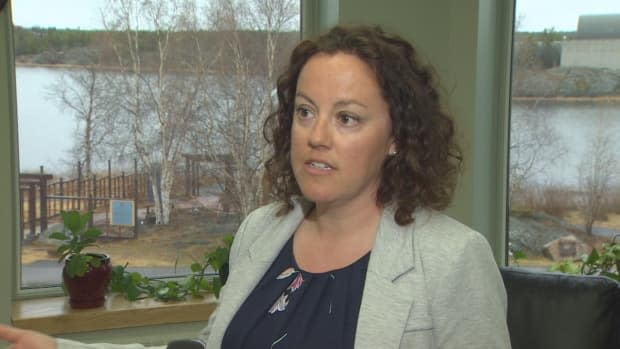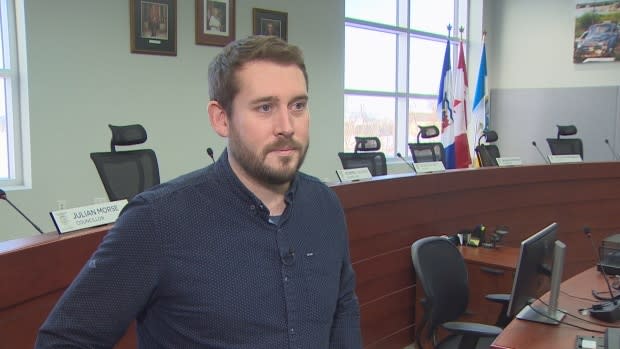Aurora College transition to university shouldn't just be 'refurbishment,' city says
As the N.W.T. eyes Aurora College to become its first polytechnic university, Yellowknife's city council worries that the college's transition lacks ambition and could become a missed opportunity for the North.
During a committee meeting on Monday, the mayor and councillors discussed concerns about how the new post-secondary institution would succeed if the transition continues to look more like a rebranding or "refurbishment" rather than an actual transformation.
In order for the polytechnic university to be successful and provide a wide range of economic and social benefits to the North, Coun. Julian Morse suggested it needs to attract students from other places, which the college has been unsuccessful at in its current format.
"We simply don't produce enough graduates to support a university structure. And I think that's something that the GNWT [government of the N.W.T.] needs to pay very close attention to if they want to be serious about developing into a university," Morse said in the council meeting.
"I think that this is a moment for us to kind of highlight the risk of not being bold and and what we could lose as a result."
Mayor Rebecca Alty recently echoed these concerns in two letters last month to the Minister of Education, Culture and Employment R.J. Simpson.
The transition "appears to underestimate, rather than celebrate, the academic strengths and opportunities of the Northwest Territories and its people," Alty wrote.
"It is unclear whether the polytechnic university would truly be different from the existing Aurora College."

Current plan 'problematic'
In the letters, Alty listed a few areas that were "problematic" in the current plan, such as insufficient Indigenous representation, broad areas of specialization that exclude important areas of study, and issues with how the new institution would govern itself.
Alty brought up how excluding social sciences as a field of study "could be a missed opportunity" to build on critical thinking skills in the North, which would further research and potentially attract students from other areas.
"The areas of specialization are too broad and do not focus on what a polytechnic university should, or could, offer here in the North," wrote Alty.
The mayor suggested that the development of these areas could be more relevant to the needs and interests of the North if experienced parties and other experts had been given more time to reflect, respond and be consulted on the topic.
The strict timeline the education department set limited meaningful consultation, Alty wrote.
These suggestions flow from a study the city commissioned, which looked at whether it would be possible to create a polytechnic university in the territorial capital and how this could be best accomplished.
Not enough Indigenous representation
How the polytechnic university plans to structure decision-making is also a concern for the City of Yellowknife.
Currently, the plan is to govern with two bodies — an academic senate made up of people from the school, and a board of governors — but it is unclear, according to Alty, how these groups would work together.
She wrote that the groups rely on each other, but the board of governors appears to have more authority and is able to "supersede, if not completely contradict, autonomy of the senate."

She also hoped that third parties, like the city, educators and other experienced groups with a "vested interest" in the school could be better represented in governance so they can work together to create a successful post-secondary institution in the North.
For example, affordable housing and student housing is something that the city can work on with the N.W.T. government so that there aren't as many barriers for students trying to get an education.
Indigenous representation is also "problematic," Alty wrote, because it excludes Indigenous residents from outside the territory, who may be residing elsewhere, but are "looking to come back to the N.W.T. to provide knowledge and support."
The current plan only allows space for three Indigenous representatives, which is "insufficient" and not representative, Alty argued.
The inclusion of an elder, she suggested, would add "valuable" perspectives and knowledge.
During the council meeting, Coun. Shauna Morgan said while it's not a city project, it is "really important" and a potential "game changer" for Yellowknife.
"I appreciate the ongoing work that we've done trying to influence it," Morgan said.
The education department is planning on releasing its implementation plan for the polytechnic university in the fall.


